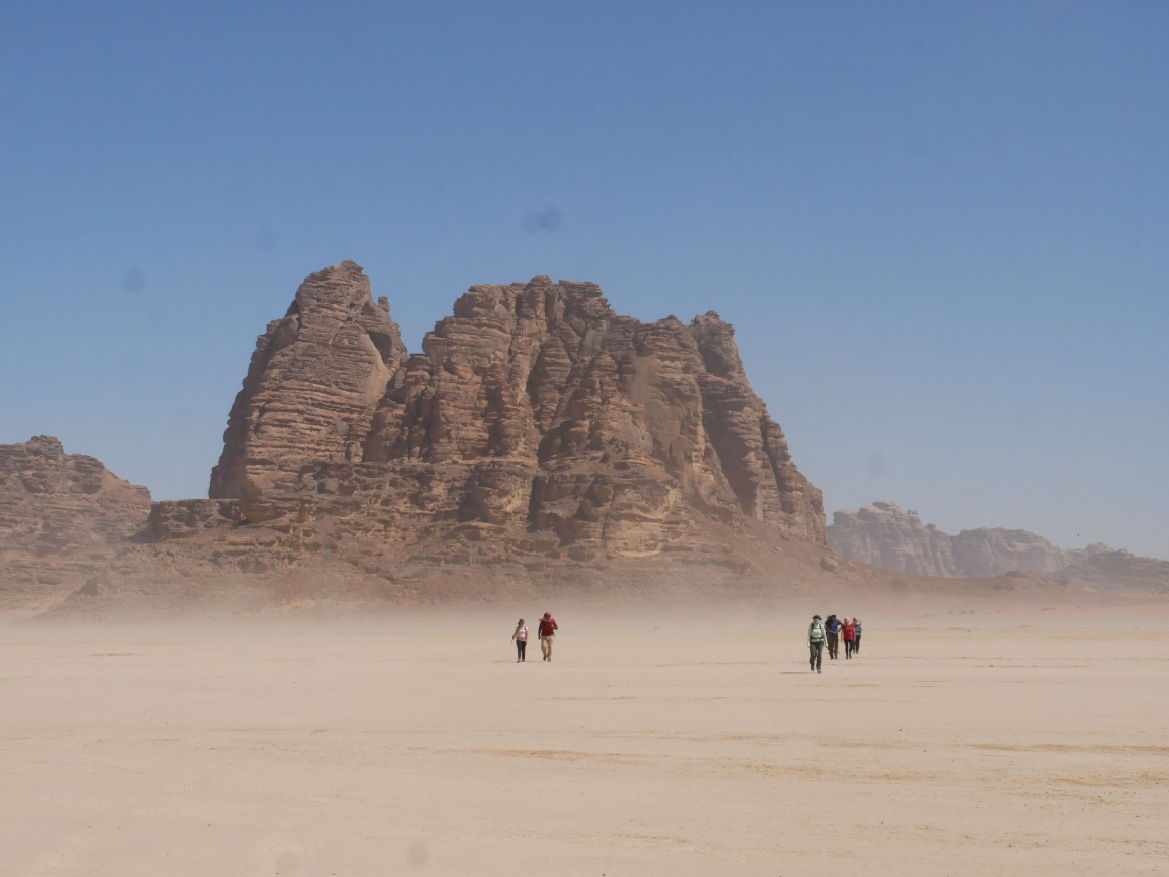Land, nation, home and risk on the Jordan trail

Guest talk:
Olivia R. Mason
(Durham University, Geography Department)
“Land, nation, home, and risk on the Jordan Trail”
21st of February, 2018, 14:00-15:30 in S1.66
Abstract:
The Jordan Trail is a long distance hiking trail that officially ‘opened’ in 2016. It runs down an almost vertical line from Um Qais at its northern border to Aqaba in the south. In autumn 2016, two Bedouins, Mohammad and Mohammad, decided to walk the Jordan Trail. They became celebrities amongst the hiking community by highlighting the ability of the trail to connect everyday Jordanians to their land. However, this ‘blood and soil’ narrative, Wylie (2016: 409), argues is an ontological position based on nationalisms that seek ‘to handcuff people, culture, time and land together’. In this paper, I first set up the ways in which the Jordan Trail brings nation and land together. I then move to disrupt this narrative in two ways. First, I unpick the term ‘homeland’ in relation to nation and land to suggest how the term homeland can be ‘a set of unbroken connections to a deeply rooted past’ (Kaplan, 2003: 89) and thus is a disconnection and estrangement with land. For many Jordanians, including Mohammad and Mohammad, a relationship with land is not one within current political borders and is always in relation to the processes of estrangement and separation which have created the modern Jordanian state. Second, through the practices of risk involved in hiking on the Jordan Trail, engagements with landscape that are uncomfortable and strange emerge that disconnect as much as they connect. Through ethnographic research conducted whilst walking the Jordan Trail and interviews with hikers this paper presents alternative ways of thinking relationship between land, nation, home and risk.
Sponsored by International Relations and Security Cluster and with help of the Political Geography group
